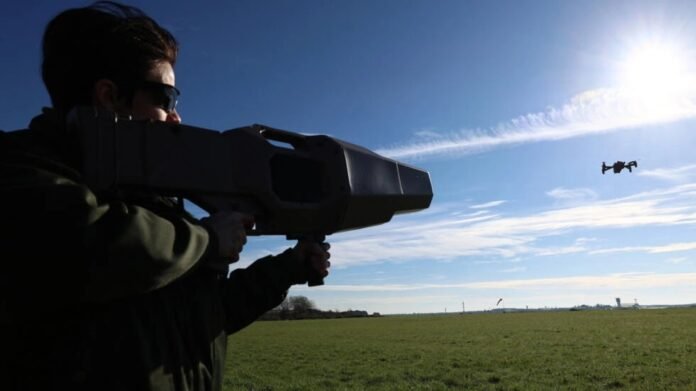
As the countdown to the Paris Olympics and Paralympics continues, concerns over the effectiveness of the anti-drone system, Parade, loom large.
Recent reports indicate that the system developed to safeguard the skies over Paris during the summer games has encountered significant setbacks during testing exercises.
According to various French media outlets, including the satirical newspaper Le Canard Enchaîné and the weekly Marianne, Parade failed to meet expectations during a March exercise, exhibiting performance below anticipated levels.
Observers noted that while the system managed to halt drones, its effectiveness was limited to a smaller perimeter than initially projected.
These revelations come as a blow to the security apparatus gearing up to protect the anticipated 300,000 spectators at the opening ceremony along the Seine.
The proliferation of drones in France poses a substantial challenge to law enforcement, with the potential for these devices to be easily weaponized.
Originally hailed as a scalable, modular solution, Parade was developed by defense equipment groups Thales and CS Group, winning a lucrative contract from the French defense procurement agency in 2022.
However, delays in delivery and concerns over performance have cast doubt on its readiness for the upcoming events.
The French Senate Defense Committee’s closed-door hearings and subsequent decision not to release a public report further underscore the gravity of the situation.
Criticism from committee chairman Cédric Perrin, coupled with the guarded statements from defense officials, paint a picture of uncertainty surrounding Parade’s efficacy.
Despite assurances from President Emmanuel Macron regarding contingency plans for the opening ceremony, including a potential relocation to the Stade de France, the specter of security threats looms large.
With global tensions running high and recent terror attacks amplifying concerns, the need for robust security measures is paramount.
Deploying anti-drone technology in an urban environment presents manifold challenges, with obstacles such as buildings and monuments complicating detection efforts.
The potential for a swarm of drones to overwhelm defenses further underscores the urgency of addressing Parade’s shortcomings.
In light of these developments, questions arise regarding the feasibility of rectifying Parade’s flaws in time for the games.
The French Air Force’s exploration of alternative systems highlights the need for a comprehensive approach to drone defense, incorporating multiple layers of security.
As preparations for the Paris Olympics and Paralympics intensify, the spotlight remains firmly fixed on Parade and its ability to fulfill its intended role.
With the eyes of the world set to converge on Paris, the imperative to ensure the safety and security of all attendees has never been greater.
This article was created using automation and was thoroughly edited and fact-checked by one of our editorial staff members